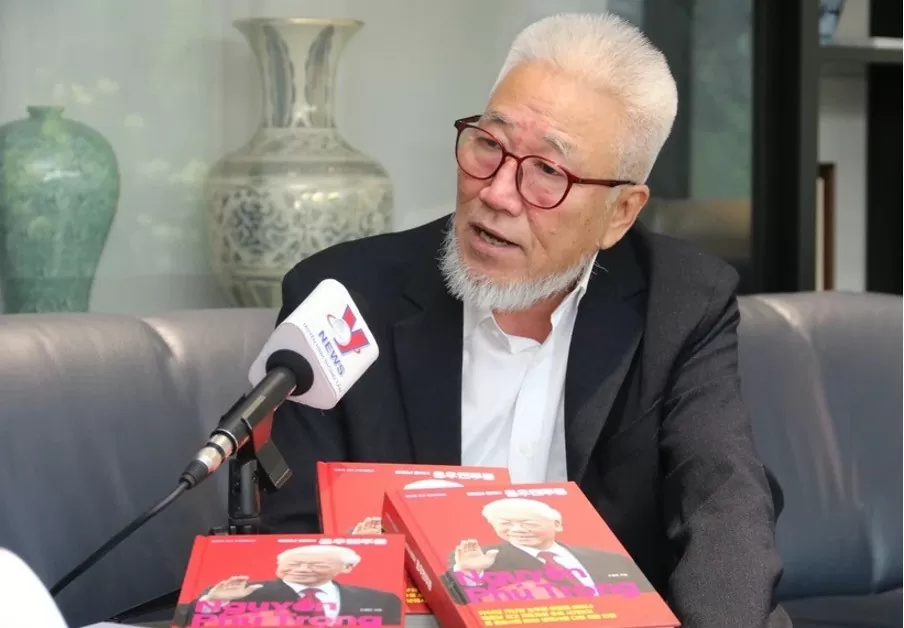
Party chief embodies image of Vietnamese bamboo tree: Korean writer
Latest
 |
| Cho Chul-hyeon, author of a book on Party General Secretary Nguyen Phu Trong published in the Republic of Korea (RoK) in May. (Photo: VNA) |
Cho Chul-hyeon, who penned a book on Party General Secretary Nguyen Phu Trong published in the Republic of Korea (RoK) in May, said he was deeply saddened by the passing of the Vietnamese Party chief.
Cho’s book is the first dedicated to the leader published abroad. Its Vietnamese version is being compiled by the Vietnam News Agency (VNA)’s Publishing House and expected to be made public soon.
The author told the VNA’s correspondents in Seoul that he will fly to Hanoi hoping to have a chance to pay last respect to the Party chief, even from a distance, expressing his deepest condolences to the Vietnamese people over the General Secretary’s death.
Praising the Party leader’s contributions to the Party, the State and the people of Vietnam, Cho said he was an eminent disciple of President Ho Chi Minh, and that he devoted his entire lifetime to the nation’s prosperity as well as Party building.
The writer held that the Party chief constantly sought ways to bring the Party closer to the people as reflected through his doctoral dissertation topic, and his pen name of “Party builder” while working for the Communist Review in the 1970s.
The General Secretary truly became an ideologist of communism with profound theories, he said, elaborating that the leader interpreted the theory of the superiority of socialism in an understandable, humane way, which is a great achievement of the Communist Party of Vietnam.
Cho highlighted the leader's imprint on the fight against corruption, stressing the Party chief’s firm perception that ensuring integrity and ethics within the Party should begin with Party members to build a Party strong enough to lead the country.
As the top leader, General Secretary Trong worked hard to attract foreign investors and promote Vietnam as a country of democracy and high economic growth for years.
He was commended by the world with his “blazing furnace” anti-corruption drive, one of the keys of Vietnam’s reform policy, according to the author.
In addition, the leader’s “bamboo diplomacy” has been held in high regard in the international arena as it has proven effective in the relations with the three powers of the US, China and Russia, Cho said, further explaining that within one year, the Presidents of all the three countries visited Vietnam, drawing global attention.
Through such important diplomatic events, Vietnam has reaped many positive cooperation outcomes, and seen its reputation and position elevated in the international arena, the writer said.
Cho went on to say that the General Secretary remained steadfast in his policy of expanding international cooperation and strengthening integration. In 2014, as Chairman of the Vietnamese National Assembly, he visited the RoK and established many foundations for the future bilateral cooperation.
Regarding his book on the Party leader, Cho said it highlights the legacy of the General Secretary, stressing not only young Vietnamese but also people worldwide should follow his example.
Cho affirmed the General Secretary himself embodies the image of the Vietnamese bamboo tree, with strong roots and a sturdy but flexible trunks, and that he is a profound theorist, who led the Vietnamese people with high intellect and humane spirit, thereby raising the Vietnamese culture to a new level.

















